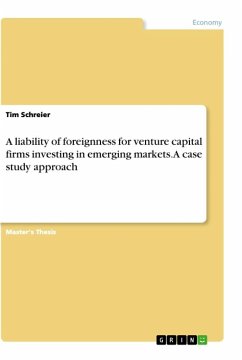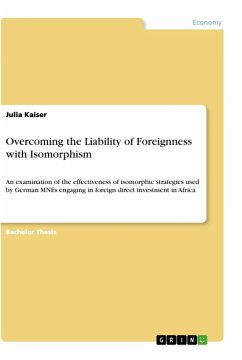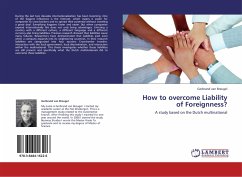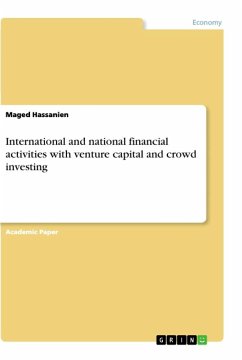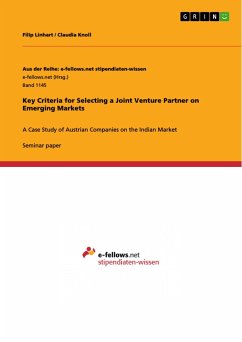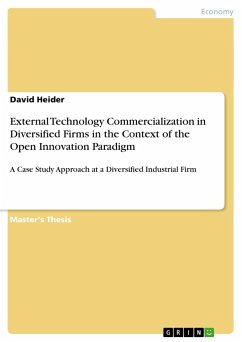Master's Thesis from the year 2015 in the subject Business economics - Business Management, Corporate Governance, grade: 1, , language: English, abstract: This study attempts to enhance the understanding of the liability of foreignness in the context of venture capitalists, hereafter VC, investing in emerging markets, hereafter EM, by drawing on case evidence from five cases. The outcomes of the study aim to provide VCs with a deep understanding of the investment environment within EM to lower the perceived risks and facilitate investments.The literature review revealed a lack of evidence for the main institutional pressures, their impact on VCs as well as the strategies used to mitigate the impact of the liability of foreignness. The main finding of the study is that a liability of foreignness exists for VCs due to political, legal and cultural pressures as well as a home bias. This leads to an increase in transaction costs. Furthermore, differences in the governance codes and business practices made it difficult for VCs to gain legitimacy within the EM while complying with all the rules and regulations of their home country. Furthermore, local adaptation through the establishment of local offices to gain access to local networks and resources was the favoured mitigation strategy of VCs. Superior firm resources were used to facilitate learning about the EM by attracting local entrepreneurs and leveraging the added value of such resources during negotiations. The relocation of the headquarters from a portfolio company operating in an emerging market to a developed country in order to access financial as well as human resources was identified as a new mitigation strategy.
Bitte wählen Sie Ihr Anliegen aus.
Rechnungen
Retourenschein anfordern
Bestellstatus
Storno

